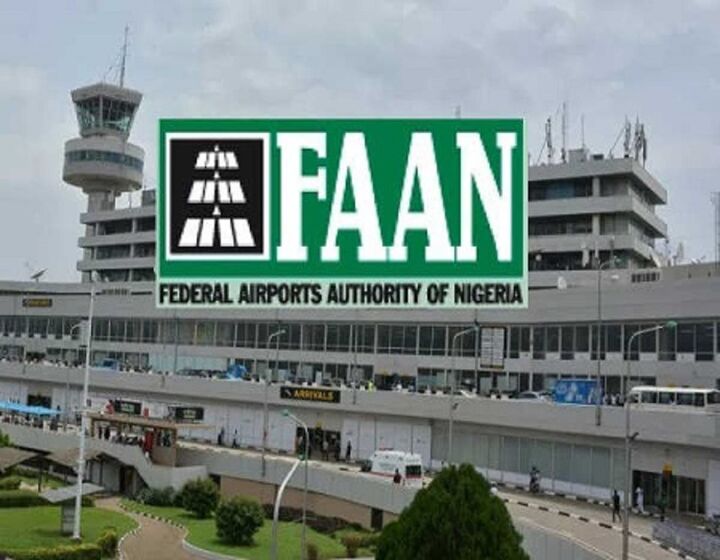The Federal Airports Authority of Nigeria (FAAN) and the Nigeria Customs Service (NCS) have announced a joint initiative aimed at addressing the deficiencies that have kept Nigeria’s aviation sector on international grey lists, marking a significant development in the country’s efforts to regain global confidence and improve aviation safety standards.
The collaboration is anchored on the shared objective of improving regulatory compliance, streamlining processes, and enhancing infrastructure to support international best practices in airport operations and security.

The co-operation agreement was formalised in a high-level meeting between FAAN’s management team and senior officials from Customs and aviation security agencies. This agreement outlines a structured roadmap to tackle the core issues that have compromised Nigeria’s ability to meet international safety and operational benchmarks. These include inadequate cargo screening procedures, outdated surveillance systems, fragmented inter-agency coordination, and shortcomings in customs clearance processes.
During the unveiling of the collaboration, FAAN’s Managing Director emphasised the critical need for modernising airport operations and ensuring seamless coordination across all agencies operating within airport environments. “Our goal is to establish physical and procedural protocols that align with International Civil Aviation Organization (ICAO) requirements. The safety of passengers and the integrity of our supply chain depend on these reforms,” he said, noting the federal government’s support for aviation sector reforms.
Customs officials acknowledged their role in cargo inspection delays and operational bottlenecks, pledging to adopt technology-driven systems to enhance transparency and speed. “By applying advanced analytics and automated inspection tools, we aim to reduce dwell times for imports and exports while maintaining strict safety and security standards,” said a senior customs executive. “Our goal is to ensure no security gaps are exploited.”
Key elements of the collaboration include the deployment of modern non-intrusive inspection equipment such as scanners and X-ray machines, expanding canine units to detect prohibited items, and instituting joint training initiatives to ensure FAAN and Customs staff operate under unified guidelines. The agencies will also establish a joint monitoring cell, with permanent representation from both FAAN and Customs, to oversee compliance across Nigeria’s airports.
Further measures include streamlining Cargo Service Centre (CSC) operations to cut down on manual documentation and expedite clearance. Electronic Single Window processing will be adopted, enabling traders and freight forwarders to submit all documents electronically to a centralised system rather than navigating disparate agency platforms. Customs will introduce expedited zoning procedures and time-bound approvals to address stakeholder complaints about cargo delays.
The FAAN and NCS plan to implement regular periodic audits—both internal and external—to measure progress against ICAO and World Customs Organization (WCO) benchmarks. They have also committed to publishing quarterly progress reports, foster transparency, and hold airport management accountable for reforms. Additionally, public awareness campaigns are scheduled to inform airlines, passengers, and freight operators of the new processes, ensuring community support and compliance.
Stakeholders across the aviation ecosystem have welcomed the development. Airline operators, freight forwarders, logistics providers, and trade associations have applauded the coordinated approach to eliminating overlap, reducing delays, and improving service quality at Nigerian airports. They expressed hope that these measures, once implemented, would restore Nigeria’s reputation in international aviation markets and pave the way for improved industry ratings.
Analysts believe the timing is optimal. Nigeria’s strategic ambition to renegotiate bilateral aviation treaties, extend airport privatisation plans, and attract foreign direct investment is heavily dependent on addressing grey list restrictions. With the government already exploring infrastructure upgrades and regulatory reforms, the customs–FAAN collaboration is seen as a cornerstone in re-establishing Nigerian airports as safe, efficient, and reliable regional hubs.
However, observers caution that success will depend on strong political will, sufficient funding, and sustained implementation discipline. The grey list status has persisted due to systemic weaknesses over the years, and reversing it will require not just goodwill but measurable progress that must be appropriately documented and sustained.
In anticipation of the reforms, the government is reportedly in talks with international development partners to secure technical and financial support. These include possible grants for equipment acquisition, training partnerships with global aviation institutions, and technical assistance from regional regulators in countries that have successfully exited similar restrictions.
Beyond regulatory benchmarks, Nigeria stands to benefit economically. Improved security, transparency, and efficiency in cargo handling could revive freight volumes, generate new revenue streams, and reduce trade costs. For airlines, the changes could enable new route approvals, higher passenger confidence, and reduced insurance premiums associated with perceived risk.
Ultimately, the collaboration between FAAN and the Nigeria Customs Service represents a crucial attempt to break Nigeria’s aviation bottlenecks. If executed promptly, transparently, and with stakeholder engagement, it has the potential to elevate Nigeria’s aviation profile, support sector growth, and restore the country to a position of compliance with global standards. As implementation progresses, attention will focus on milestones achieved, progress reports, and feedback from international oversight bodies on Nigeria’s path off the grey list.
Support InfoStride News' Credible Journalism: Only credible journalism can guarantee a fair, accountable and transparent society, including democracy and government. It involves a lot of efforts and money. We need your support. Click here to Donate
